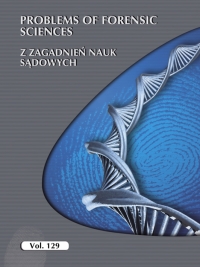Comparative study of rose and hibiscus petals powders in latent friction ridge analysis
Comparative study of rose and hibiscus petals powders in latent friction ridge analysis
Author(s): Vanisha Godara, Vinay Aseri, Sneha Lohar, Poonam Kumari, Badal Mavry, Varad Nagar, Ashrut Singhal, Apoorva Singh, Kumud Kant Awasthi, Mahipal Singh SankhlaSubject(s): Criminology
Published by: Wydawnictwo Uniwersytetu Jagiellońskiego
Keywords: Latent fingerprints; Rose petals; Hibiscus petals; Cost effective; waste material; Friction ridges;
Summary/Abstract: Fingerprints are the friction ridges found on the fingers and palm of hands. These prints are considered the most valuable evidence in the court of law as these ridges provide uniqueness to every individual. Powder dusting is one of the prevalent approaches to developing fingerprints on various surfaces. This involves the application of finely formulated powders on the fingermark impression using a camel hair brush. in this article, we have used organic household waste materials like rose and hibiscus petals for developing the powders used in latent fingerprints development. The particle of powder gets adhered to sweat and moisture deposited on the surface of fingers, palm, and sole, which provide effective visualization and give the fingerprint details (minutiae). Finally, the formulation of the powder sticks to the ridges, and the excess powder is blown away. The powder is multicolored in this case, the patterns are apparent, resulting in an exceptional outcome. The objective of the study is to provide a replacement to the conventional, expensive and toxic laboratory powders. These organic powders are easily available, eco-friendly, cost-effective and non-toxic approach for latent fingerprint development and is a reliable technique to use at crime scene and future use.
Journal: Problems of Forensic Sciences
- Issue Year: 2022
- Issue No: 130-131
- Page Range: 145-155
- Page Count: 11
- Language: English

